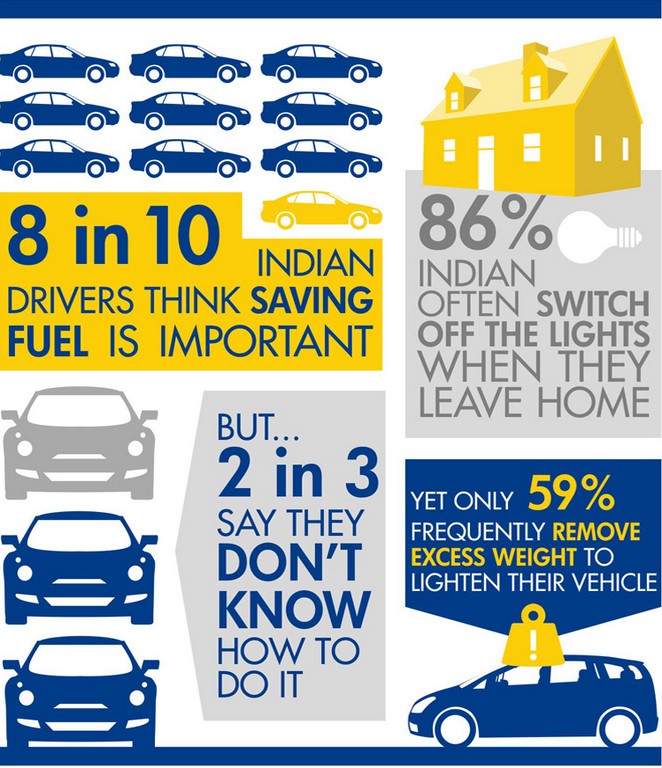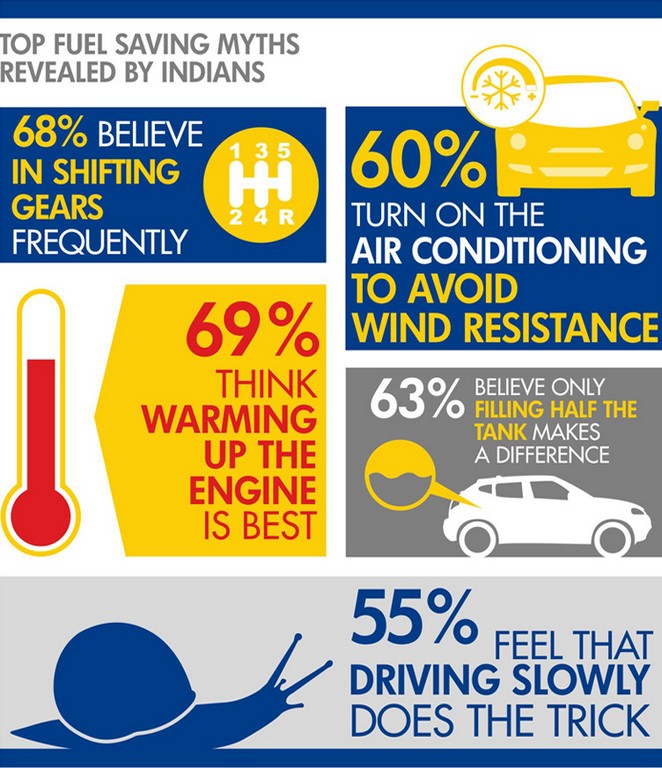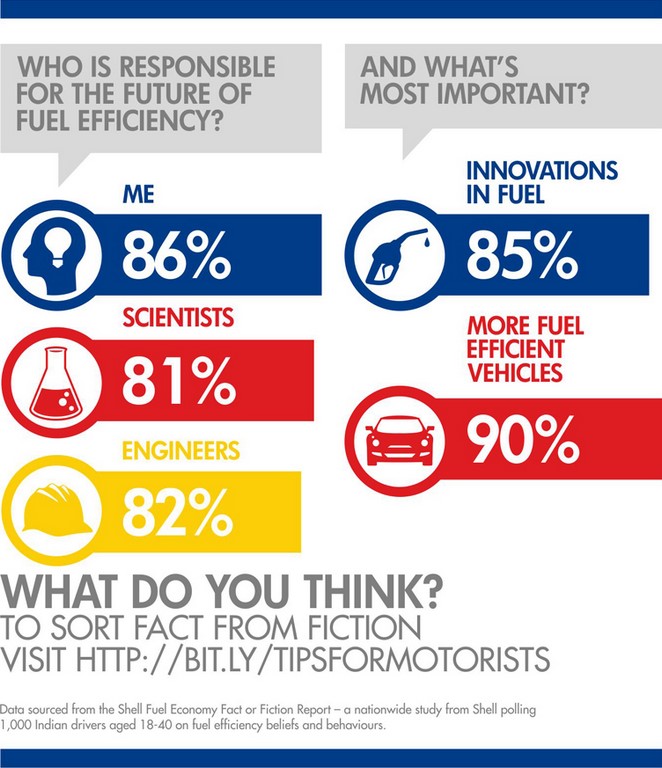The Shell Fuel Economy Fiction Report reveals many of the popular myths Indian drivers believe in for increasing fuel efficiency figures.

The Shell Fuel Economy Fact or Fiction Report was commissioned by Shell and conducted by an independent research firm, Edelman Berland in December 2014 to January 2015. The survey was conducted as an online questionnaire with a nationally representative sample of 1000 Indian drivers aged 18 to 40 years, and it reveals the lengths up to which an average Indian goes to increase fuel efficiency and cut down on driving costs.
Some of the results of the study show that in India, fuel efficiency is an important factor for 8 out of 10 (83%) drivers. However, over two-thirds (68%) do not know how to become more fuel efficient. Due to this, 54% of those who are unaware feel anxious about fuel efficiency and lead them to believe and practice a collection of peculiar fuel saving myths.
While talking about myths, 95% of drivers turn on the air conditioning instead of winding down their windows to avoid wind resistance, 60% of these believe that it saves fuel. Whilst 92% warm up the engine before they drive, more than two thirds (69%) believe this same myth will help them save fuel. But in a shocking discovery from the research, almost half (49%) the Indians also believe in ‘burping’ their cars to release air pockets in the tank, thereby saving fuel. 68% people shift gears more often, 63% fill their fuel tank partially to avoid excessive weight and 55% feel that driving slowly actually saves more fuel.
Bringing the ridiculous practices out of context for a bit, 98% drivers practice good behaviour like checking their tyres to make sure they are properly inflated, ensuring that their vehicle is regularly serviced and also believe in driving smoothly to increase fuel efficiency.
The study also reveals that Indian drivers are likely to be more efficient at their homes than in the car. 86% of people say they frequently turn off the lights when leaving their homes to save energy, while only 59% would frequently remove excess weight from the boot of their vehicle to help save fuel.
When it comes to responsibility for the future of fuel efficiency, 86% think they themselves are accountable, 81% consider scientists and 82% drivers believe that engineers contribute to future responsibility. Over two-thirds (67%) agree that the education of engineering and science students is important in helping to save additional fuel and fuel efficient vehicles are considered the most relevant innovation, followed closely by innovations in fuel itself.
Some of the popular beliefs revealed through the study actually turned out to waste fuel rather than helping to conserve it. This study shows how unaware the general public is about basic practices involved for saving fuel and which of the areas need to be particularly highlighted.






